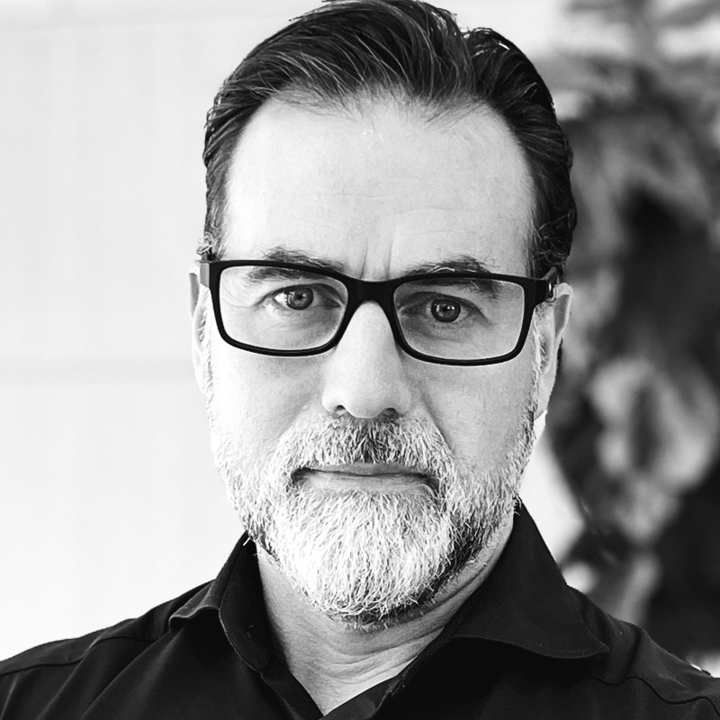Would you be comfortable quitting your job without another one lined up?
I’ve been in recruitment for over 7 years and have spoken with thousands of candidates who have recently quit or are at least starting to contemplate it.
Pre-Covid the topic of quitting before you’d lined up another job never came up, yet this has changed dramatically in the last 6 months. Now I seem to be having these conversations weekly.
I believe it’s down to a shift in our working culture after the pandemic left 42% of Aussie workers feeling fatigued and burnt out. Either that or it’s like in Grand Theft Auto when you steal a rare car only to see that exact same car pop up everywhere you go…
This shift means that people need to overcome some biases.

Over the years I’ve heard my fair share of excuses from candidates who’ve quit before looking for a new job that has turned out to be lies, usually not out of malice, but just looking to avoid confrontation.
My first instinct would’ve been to doubt someone and suspect foul play if they told me they decided to quit their job without an obvious reason such as moving abroad or a family emergency.
“There’s been a shift in attitudes to the way we work but more importantly why we work.”
The increase in resignations in Australia from 7.5% to 9.5% may not quite be the Great Resignation that hit the States and was forecast for us. I think the term Great Reset is more apt if we need a slogan. Aquent’s 2022 Talent Insights Report mirrored this as ‘Flexible Working’ became the key job requirement, dethroning ‘Career Progression’.
This aligned with my conversations with talent. I noticed a significant increase in talent leaving their role to either:
- Protect their mental health
- Reassess what’s important to them
- Get away from an exhausting working environment
- Just give themselves breathing room to focus all their effort on finding the perfect next step
As someone who’s been burnt out in the past, this is a change I can get behind!
I recently ran LinkedIn poll running with this exact topic.

As I’m writing this, it’s tipped towards “Yes”, people would be comfortable quitting which is surprising! Maybe because my instinct is no. I was one of many Covid-redundancies in 2020 which may have made me overly cautious about this sort of thing.
So, what should you do…
IMO if you’re in a job that you feel is affecting your mental health and you’ve exhausted your options with trying to solve this with your manager, then quitting before you have something else lined up may be the right decision to make.
“Having an extended break and a chance to reset will leave you refreshed and more productive in your next role.”
Gaps in your CV of 3 months or more can be flagged by hiring managers so it may be worth considering your options thoroughly before making the jump. If your reasons for quitting aren’t mental health-related or “once you’re feeling up to it”, then it may be worth looking at industry-related certifications or training you can complete whilst you’re off – these certs can help show that you’re still passionate about the industry (e.g. Aquent Gymnasium is a handy resource we have with free online courses).
Linkedin also has a new option for you to add a “Career break” into your profile with the ability to add more details. This mainstream option has helped to make it not such a big deal anymore.
What about salary negotiations?
It’s argued that you may lose bargaining power with your future salary negotiations if you’re not currently employed.
However…
If you have genuine reasons for taking a break twinned with a succinct, outcome-driven CV showing your value-add — then you have nothing to worry about.
The elephant in the room is that a big portion of Aussies are living pay cheque to pay cheque. They don’t have the luxury to consider quitting without knowing where their next pay is coming from. In these cases, I’d recommend finding a specialist recruiter who you trust (doesn’t have to be me, but you can reach out to our team of Aquent recruiters!) as they can take away the stress and leg work of a job search.
A good recruiter will:
- Be proactively searching for a role tailored to your strengths and aspirations
- Review and offer tips on your CV
- Offer market insights and salary benchmarking so you’re paid what you deserve
- Have direct access to hiring managers to highlight your suitability and personalise your application
- Have access to job opportunities that may not be on Seek or LinkedIn
- Coach you throughout the interview process
- Offer onboarding support and aftercare
A less daunting solution than instantly quitting may be keeping things ticking over at work, doing the bare minimum, and focusing your efforts on doing a thorough job search or working with a couple of good recruiters.
Similar to the quiet quitting “phenomenon” that I’ve only heard literally one person say they’re doing — this may not be the best thing for your employer and does risk burning bridges if it’s not handled properly. Alongside your jobsearch, I’d recommend building your own network through virtual and especially in-person meet-ups. It’s a relatively small market in Australia so it can be a great way to build your reputation.
From an employer’s perspective, it may be beneficial in the mid to long-term if any disenfranchised team members cut their losses and quit. Obviously, the preference would be for it to never get to that stage, as there must have been a time when both parties were keen to work together.
Employers need to be proactive in taking care of their team, this could be as simple as:
- Benchmarking your team’s salaries to ensure your current team get a pay increase to match your new hires or are in line with market rates. Your team will chat about that sort of thing!
Check out our 2022 Salary Guide to check your salary, or benchmark your team. - Understanding hybrid working arrangements have become essential to retain your staff. This new Way Of Working (WoW) requires effort to ensure the company culture isn’t lost, improving the tech you use and upskilling your management team for WoW.
- Being proactive to understand what drives and energises your team to keep them engaged.
- Making your onboarding experience remote-friendly. Most of the candidates I place into a new role start remotely so the onboarding process has become more important than ever. It’s easy for a new hire to feel left out and start to question their decision when they’ve never met their team. Keeping the conversation going going throughout their 4-12 week notice period is needed. Once they have started utilising a buddy system, even if it’s virtual, is a great way to help someone settle in.
If you’ve been considering making the jump or if you’re a manager that’s having difficulties retaining or attracting talent – I’d be happy to have a chat. Connect with me on LinkedIn.
Latest.

5 simple (but powerful) ways to shine in your design interview.
Job Seeker, Design

How to demonstrate the value of your design team in 2025
Thought Leadership, Design, Industry Trends, Leadership

Ace your interview: Words to watch out for.
Job Seeker




